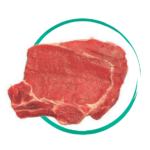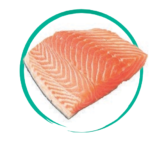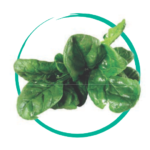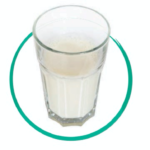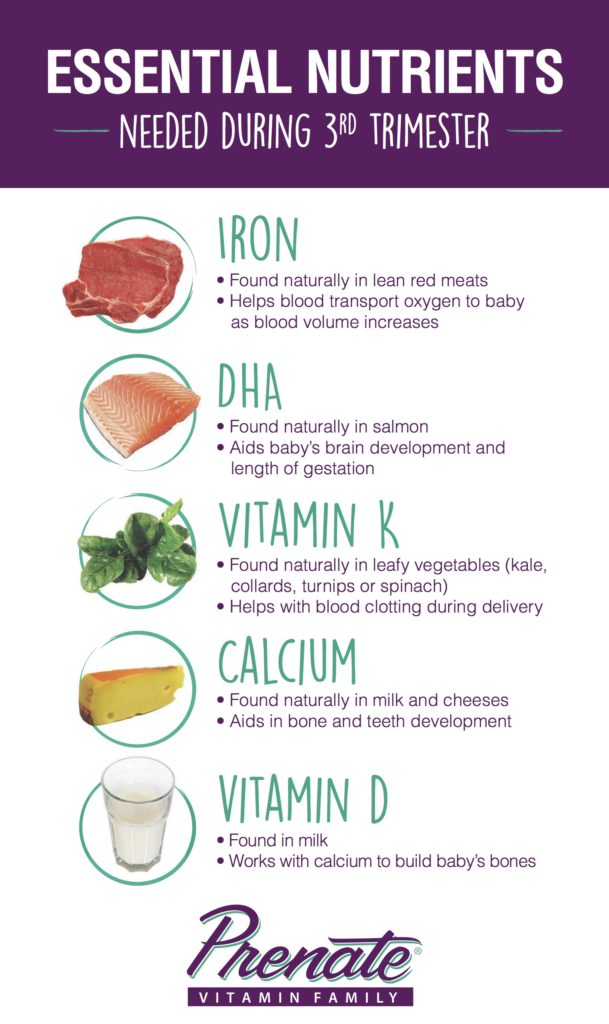Essential Nutrients for Your Prenatal Diet: Third Trimester
July 18, 2016
During the third trimester, week 28 – week 40 of pregnancy, the physical demands on the mother’s body reach their peak. Expecting moms may lose some of that energy they regained in the second trimester. Backaches, fatigue and stretch marks may occur as the baby and mom’s body grow bigger. Some women experience leaky breasts as the body prepares for breastfeeding. Others report lack of bladder control from the extra weight on their pelvis.
Mom may experience some undesirable physical symptoms, but baby experiences some remarkable milestones during the third trimester. Early in the third trimester the baby’s starts to receive signals from all five senses. The brain develops more than in any other trimester. The soft cartilage throughout the body is transformed into bones that make up the skeletal structure. Plus their skin, hair and nails develop. Around week 34 the baby starts to turn southward – a move that prepares them for delivery. And in the final weeks of pregnancy, the meconium (an infant’s first bowel movements) build up in the intestines.
Just as in the first and second trimesters, it is also important for expecting mothers to abstain from alcohol and smoking to support healthy growth of the baby. As in other stages of pregnancy and preconception, women should eat a well-balanced diet with plenty of whole grains, veggies and fruit. During the third trimester pregnant women should continue with an increased protein intake of 71 grams per day.1 Lean protein sources, like poultry and fish, are excellent options that are lower in calories and fat.
These essential nutrients should be included in every third trimester prenatal diet:
Iron
Natural food sources of iron include lean red meat, poultry, legumes, vegetables and grains. The U.S. Food and Drug Administration recommends that pregnant and lactating women get 18 mg of iron daily.2 During pregnancy, a woman’s blood volume increases 50 percent, and her need for hemoglobin is greater. During the third trimester the mother’s blood volume increases to meet the needs of the baby and placenta.3 Iron is an essential mineral in the body’s formation of hemoglobin, the red protein in the blood that is responsible for transporting oxygen throughout the body. Sufficient iron consumption during the third trimester helps a growing baby receive the amount of oxygen needed to develop a strong heart, lungs and muscles. Iron deficiency during pregnancy increases the risk of premature birth and low birthweight.3
DHA
Because of the dramatic brain development that occurs in the third trimester, DHA is very important. Fish, eggs, meats, nuts, seeds, whole grains and dark leafy vegetables all naturally contain DHA. Oily fish, like mackerel, herring, salmon and trout, typically contain 10 times to 100 times more DHA than non-marine food sources.4 However, pregnant women need to be extremely careful when consuming marine food sources that contain DHA. Many of these fish contain high levels of mercury, and high levels of mercury can be toxic for both moms and their developing babies. In the right amount, between 500 mg and 2 grams per day, DHA is essential for growth and functional development of an infant’s brain.5,6 During the third trimester, when the baby’s body is dramatically developing, DHA aids in a healthy birth weight and the length of gestation.7,8
Vitamin K
Leafy vegetables, like collards, turnips, spinach and kale are packed with vitamin K. The National Institutes of Health recommends that pregnant and lactating women get 90 mcg of vitamin K daily.9 For most Americans this amount is easily achieved through diet alone. However, vitamin K is critical in blood clotting. In the third trimester, the body is preparing for labor. During the delivery process, women lose around half a quart of blood.10 That number can double for cesarean births.10 Vitamin K in the third trimester can help prevent clotting and recovery from labor.
Calcium
Milk, yogurt and cheeses are naturally rich in calcium. Some orange juices and cereals are also fortified with calcium. The U.S. Food and Drug Administration recommends that pregnant and lactating women get 1,300 mg of calcium daily.2 The baby draws calcium from his mother’s bones if his needs are not met.11 Calcium and vitamin D work together to develop and maintain bone strength and healthy teeth.12 In the third trimester, the baby’s bones develop, putting an added emphasis on its importance. Calcium also helps the heart, nerves, muscles and other body systems develop properly.12 For expecting moms, calcium supplementation appears to be beneficial if they are at high risk of gestational hypertension.13 During the third trimester it may reduce systolic and diastolic blood pressure as well as the risk of preeclampsia.14
Vitamin D
Very few foods naturally contain vitamin D. But because this nutrient is so important, milk, orange juice and cereals are often fortified with it. The U.S. Food and Drug Administration recommends that pregnant and lactating women get 400 IU of vitamin D daily.2 One of the primary benefits of vitamin D is maintaining and building bone mineralization. Vitamin D helps the body absorb calcium, which helps build a strong skeletal system.15 Because a baby’s body doubles in length in the second trimester, it is especially important for an expecting mother to meet her daily vitamin D requirements during this time. Otherwise, nutrients are taken away from the mother and preferentially partitioned to the baby.16 However, vitamin D is not just about building and maintaining healthy bones. Ample vitamin D supplies may help reduce the risk of preeclampsia and gestational diabetes, which both occur more often in the third trimester.17
Fill Nutritional Gaps with Prenatal Vitamins for Third Trimester
While a balanced diet is preferred during the third trimester, some women may have trouble meeting their daily recommended intake for certain vitamins and minerals. The Prenate® Vitamin Family offers a line of prenatal vitamins that are designed to carry moms and babies through preconception to pregnancy and into the weeks and months after delivery. These prenatal vitamins specifically address the essential nutrients both mom and baby need in the third trimester:
- Prenate Mini® – a small, easy-to-swallow soft gel with complete prenatal nutritional support, including 350 mg of DHA
- Prenate® Enhance – a prenatal vitamin with 400 mg DHA, 1000 IU of vitamin D and chelated iron
- Prenate® Restore – a postnatal vitamin, appropriate during pregnancy, with probiotics, DHA and chelated iron
The Prenate® Vitamin Family helps support expecting moms with robust doses of key nutrients. Talk to your doctor to see if a prenatal vitamin may be right for you to help fill nutritional gaps.



